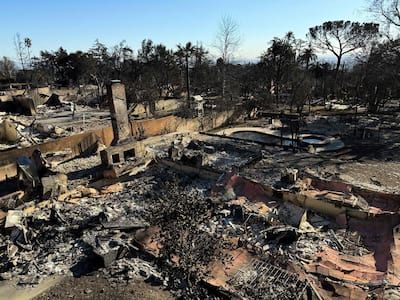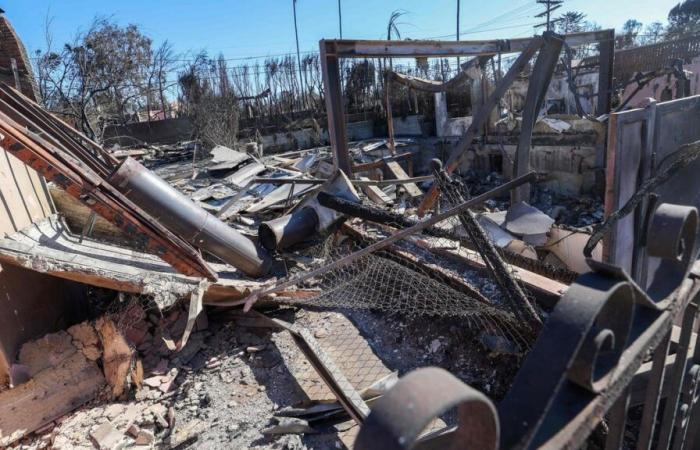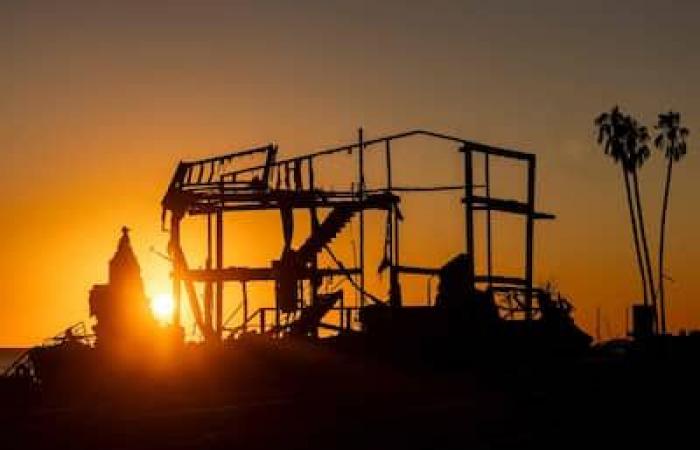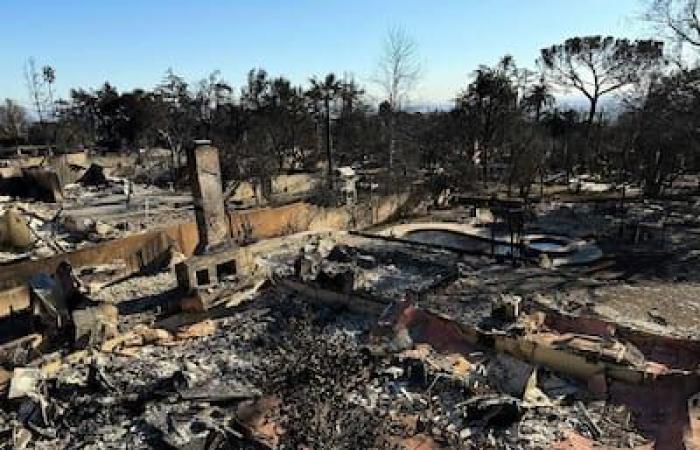When Pacific Palisades went up in smoke, Alexander Swedelson lost his apartment, but also a bit of his identity: the flames ravaged the businesses he loved, the trails where he ran, and even the area where he fished.
• Also read: IN PICTURES | No respite in fires in Los Angeles, where the wind blows
• Also read: IN PICTURES | Los Angeles fires: Malibu beach turns into village for firefighters
• Also read: “LA is there”: after the fires, the donation centers overwhelmed
“It’s the most heartbreaking thing I’ve ever seen in my life. It’s like a war zone,” this 39-year-old photographer told AFP, in the middle of the ruins of this upscale district of Los Angeles.
This tortured landscape, where all landmarks are erased, reopens buried wounds.
“I will probably go back to therapy,” breathes this former alcoholic, sober for six years.
For the past week, the former volunteer firefighter has gone out of his way to help his community.
Armed with a water pump and a chainsaw, he first tried to save his parents’ house, in vain, before fighting against the spread of embers in the neighborhood. Then, he delivered food and air filters to elderly people who had not evacuated. Hours of sleep were rare.
“I think I’ve reached my limit,” he says, misty-eyed, in his pick-up covered in the pink fire retardant dropped by the planes. “I kind of awakened a dormant beast inside me, and I’m going to have to be very careful.”
A former counselor in a detoxification clinic, this Californian has seen enough firefighters and police officers pass by to distrust himself.
Treat yourself “early”
With at least 25 dead and still 88,000 people under evacuation, the fires still ongoing in Los Angeles are leaving their mark on the American megacity.
Some firefighters had to fight the flames with the means at hand, due to dry fire hydrants. Thousands of people saw their homes reduced to ashes.
And even when their house is spared from the flames, some survivors break down in tears, devastated by the loss of their neighborhood life.
These destructive fires are also likely to affect audiences who are often forgotten, according to psychotherapist Sonnet Daymont. Like teenagers, glued to dramatic images repeated over and over on social networks, or neighbors outside disaster areas.
“Survivor’s guilt and vicarious trauma exist,” she insists in her Pasadena office, where she offers free sessions to survivors.
AFP
The victims are supported by his dog Mobius, a Cavalier King Charles who himself survived a forest fire.
“The sooner we are treated, the better,” explains Ms. Daymont. “If we hold back emotions and don’t process them, (…) it can get worse in the future.”
In Canada, a study by Laval University followed the survivors of the town of Alberta (west), victims of a fire in 2016. A year after the disaster, a third of them suffered from depression, anxiety, drug addiction or post-traumatic stress.
Eco-anxiety
“The impact of a fire is really felt over time,” says Kathryn Andrews.
This visual artist lost her mobile home in the flames in Pacific Palisades.
At 51, she unfortunately has a feeling of déjà vu. In 2020, his house had already been razed by a fire in the hills of Juniper Hills, an hour and a half drive northeast of Los Angeles.
“After that, I had a creative block for about a year and a half,” she says. “I kind of closed in on myself.”

AFP
The artist also suffered from eco-anxiety, as California suffered many particularly destructive megafires over the past 15 years.
“I began to think of the entire American West as a potential fire zone,” she breathes. “It made me more aware of climate change.”
Fire survivors “often talk about climate change,” confirms Ms. Daymont, the psychotherapist. They also “tend to ask themselves: ‘Why me?’
In her office, she invites them to consider themselves as “survivors”, rather than “victims”. And develop strategies with them to soothe the body and mind.
“It’s an opportunity to work on post-traumatic growth,” she emphasizes. “When you go through a difficult experience and deal with it, you can learn lessons that can be applied in other areas.”








